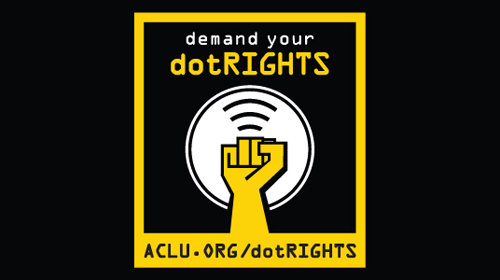
In the digital age that we live in today, we are constantly exposing our personal information online. From using cell phones and GPS devices to online shopping and sending e-mail, the things we do and say online leave behind ever-growing trails of personal information. The └¤░─├┼┐¬Ż▒Żß╣ű believes that Americans shouldnÔÇÖt have to choose between using new technology and keeping control of your private information. Each week, we feature some of the most interesting news related to technology and civil liberties that weÔÇÖve spotted from the previous week.
[Los Angeles Times ÔÇô Patrick McGreevy]
College students will have free digital access to many textbooks, receive more warning about tuition hikes and have their social media accounts protected from snooping university officials under measures approved by Gov. on Thursday. The new privacy laws also prohibit employers from asking workers or job applicants for their email or social media account passwords.
[Wired ÔÇô David Kravets]
The Justice Department use of warrantless internet and telephone surveillance methods known as pen register and trap-and-trace has exploded in the last decade, according to government documents the American Civil Liberties obtained via a Freedom of Information Act claim.
See Also [CNET ÔÇô Declan McCullagh]
[Associated Press ÔÇô Joan Lowy]
More than a third of Americans worry their privacy will suffer if drones like those used to spy on U.S. enemies overseas become the latest police tool for tracking suspected criminals at home, according to an Associated Press-National Constitution Center poll.
[New York Times ÔÇô Natasha Singer]
Federal regulators are about to take the biggest steps in more than a decade to protect children online. The moves come at a time when major corporations, app developers and data miners appear to be collecting information about the online activities of millions of young Internet users without their parentsÔÇÖ awareness, childrenÔÇÖs advocates say.
[New York TimesÔÇô Editorial]
"For the right to personal privacy to survive in America in this digital age, courts must be meticulous in applying longstanding privacy protections to new technology. This did not happen in an unfortunate last month by a three-judge panel of the United States Court of Appeals for the Sixth Circuit."
Learn more about digital privacy: Sign up for breaking news alerts, , and .

